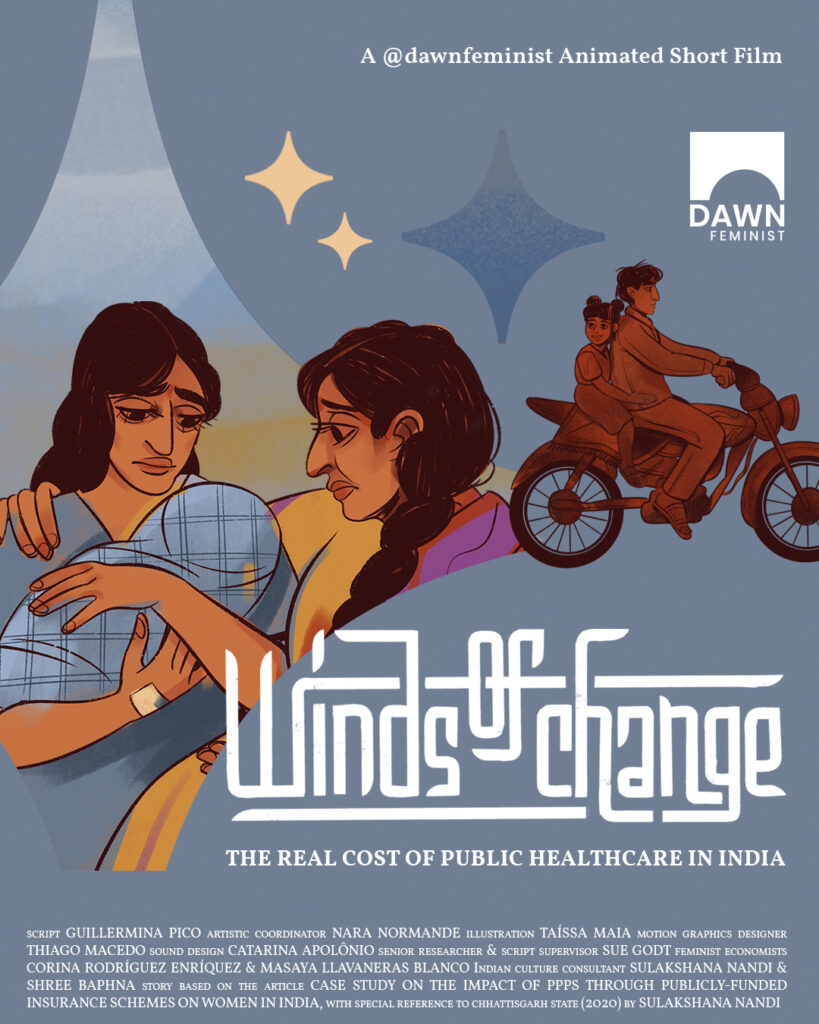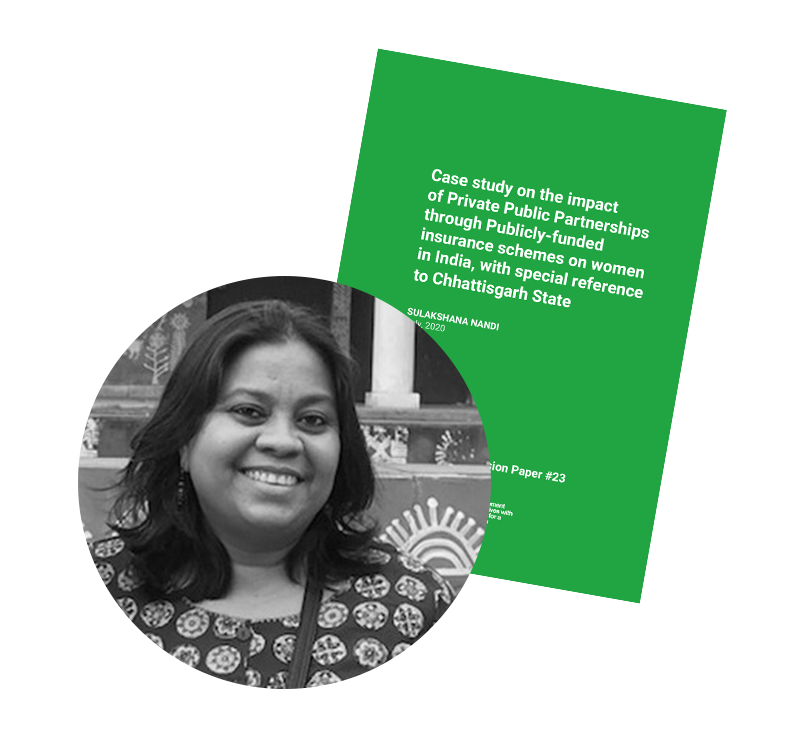In India, profound inequities exist with respect to health service utilisation and access to health care, related to socio economic and political status, geography, and gender differences, amongst others (Balarajan, Selvaraj and Subramanian, 2011). This is reflected in higher mortality rates, a larger burden of disease, along with high levels of malnutrition among socio-economically vulnerable groups such as Scheduled Tribes (STs), Scheduled Castes (SCs) , rural populations, and urban poor.
Winds of Change
“Winds of Change” tells us the story of Munni, a young girl in India, eagerly awaiting the birth of her baby brother. However, what should be a joyous occasion becomes a challenging ordeal as her family has to confront the harsh realities of a healthcare system that has been weakened by health insurance PPP where hospitals often illegally demand out-of-pocket payments for extra services that really need to be freely accessible. The animation serves as a critical examination of how healthcare is increasingly treated as a commodity rather than a fundamental right in India.
India’s healthcare system is an intricate blend of public health facilities and programmes, aiming to deliver universal preventative and curative health services at minimal or no cost to users. This extensive network operates alongside a sizable “for-profit” private health sector, primarily situated in urban areas and functioning on a “fee-for-service” model.
However, the “for-profit” private health facilities and increasingly public facilities in India are gaining a reputation for unethical practices and exploitation of patients. Instances include unjustified medical procedures, such as forced hysterectomies and unnecessary caesarean sections. Patients are often subjected to out-of-pocket payments, contrary to the expectation that the health insurance PPP would provide necessary procedures and services at no cost.
If you couldn’t afford it, why did you come here?
The existing legal framework lacks strength; transparency is compromised, and regulatory mechanisms often fall short, contributing to an environment where illegality prevails over enforcement of rules.

The film not only provides a glimpse into this harsh reality through the eyes of a family welcoming a new member but also underscores the vital role of mobilising communities in resisting initiatives that compromise health and human rights in India and globally.
The Podcast
In this thought-provoking episode, renowned feminist economist Corina Rodríguez Enríquez and international development expert Sue Godt will guide you through an in-depth conversation with public health expert Sulakshana Nandi, author of the case study on the impact on women in India of publicly-funded health insurance private-public partnership schemes, with special reference to Chhattisgarh state.
Sulakshana helps us reflect on the historical and current context that led to the development of health PPPs in India given the intertwining of global agendas around universal health coverage with the neoliberal frameworks and how they play out at national levels.
The author argues how the discourse of strategic purchasing for universal health coverage is highly contested on the role of governments and the road map to achieve the universal health coverage objectives. The experience of the implementation of PPPs not only in India but in many countries of the global South has shown that it only led to further commodification and commercialisation of healthcare and worsened equity in access, weakening public services without being able to regulate the private sector.
We also learn from Sulakshana that social movements are growing stronger and more effective in their campaigns to resist neoliberal and anti-democratic changes, and to advocate for progressive change. What other lessons can we learn from the experience of India?
Join us in this inspiring discussion, a part of DAWN’s multimedia project “Old Dog, New Tricks: Neocolonialism & Public-Private Partnerships in the Global South”, which highlights the effects of PPPs on women’s lives.
Connect The Dots
In India, profound inequities exist with respect to health service utilisation and access to health care, related to socio economic and political status, geography, and gender differences, amongst others (Balarajan, Selvaraj and Subramanian, 2011). This is reflected in higher mortality rates, a larger burden of disease, along with high levels of malnutrition among socio-economically vulnerable groups such as Scheduled Tribes (STs), Scheduled Castes (SCs) , rural populations, and urban poor.
These groups have historically been subjected to a process of impoverishment and marginalisation, through exploitation by the dominant social and economic groups and lack of appropriate and responsive development processes (Drèze and Sen, 2013). Within this context of inequity, different groups of women face the brunt of multiple disadvantages and vulnerabilities that intersect with each other and that too at every stage of their lives. While India ‘progresses’ on its development paradigm in a liberalized economy, women have been the ones most affected by the increasing violence, dispossession and resource capture, environmental degradation, migration, informalisation of labour and dominance of the conservative right-wing. Age-old discriminatory practices such as sex-selective abortions, child marriage, dowry, witch hunting, honour killings continue.
All this combined with inadequate increase in social welfare, decreases in public provisioning of public services and increasing privatisation has made women who belong to lower socio-economic categories, caste and tribal groups, more vulnerable. Women’s organisations and feminist organisations have been resisting and campaigning against the processes that undermine women’s status and agency. Struggles have been led by women belonging to ST and SC communities against capture of resources, displacement and corporatization and also against health privatisation. Recent mobilisations have been led by young women and wider solidarities built with other social movements.

Read now The Impact of Private Public Partnerships through publicly-funded insurance schemes on women in India, with special reference to Chhattisgarh state by Sulakshana Nandi
